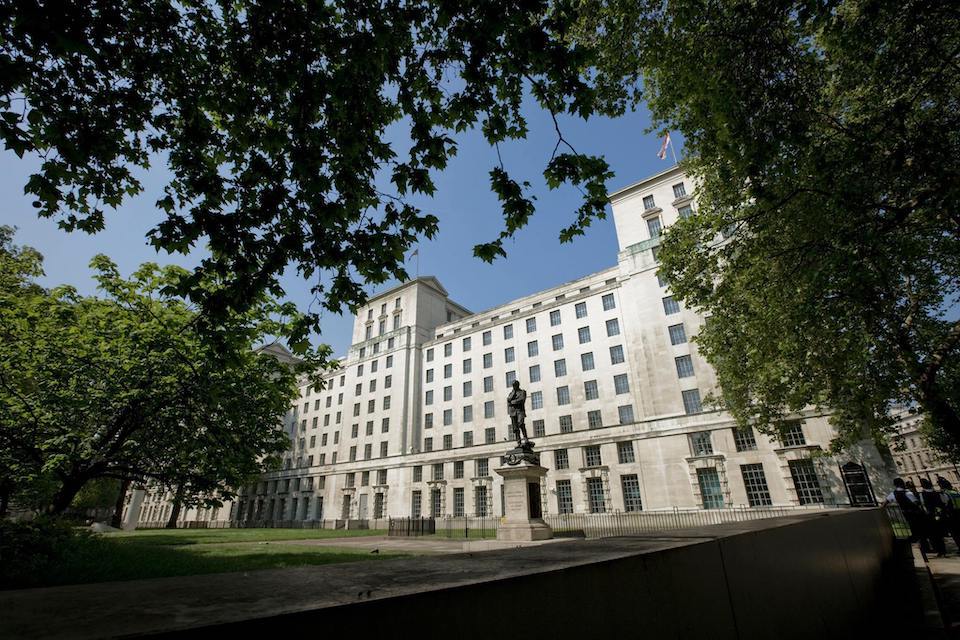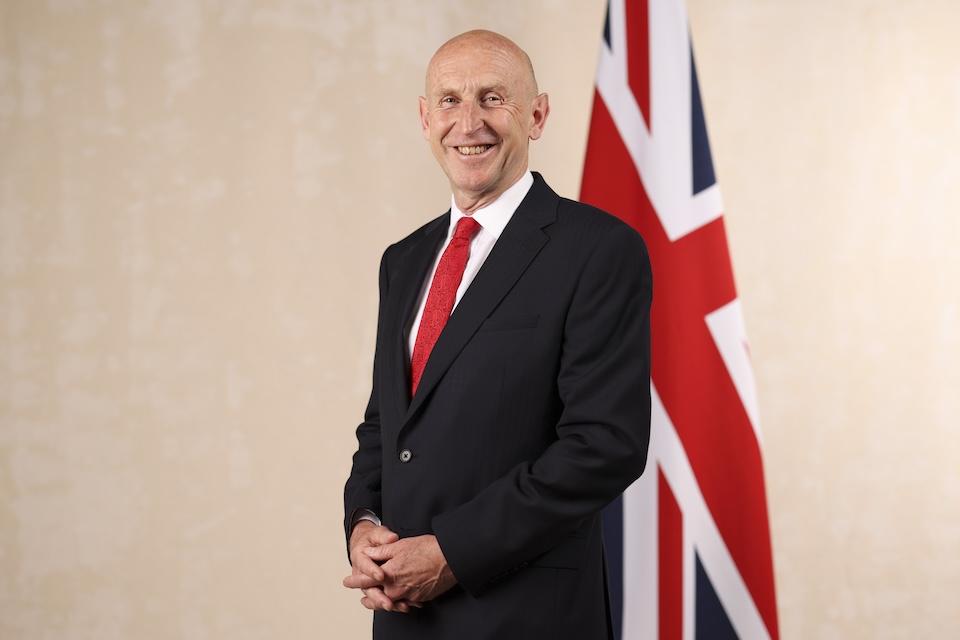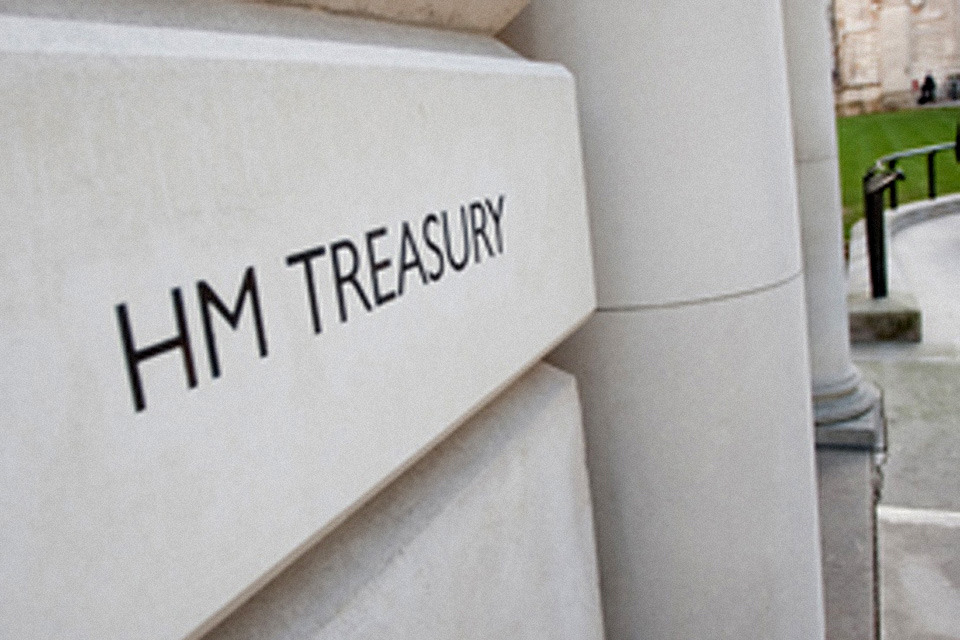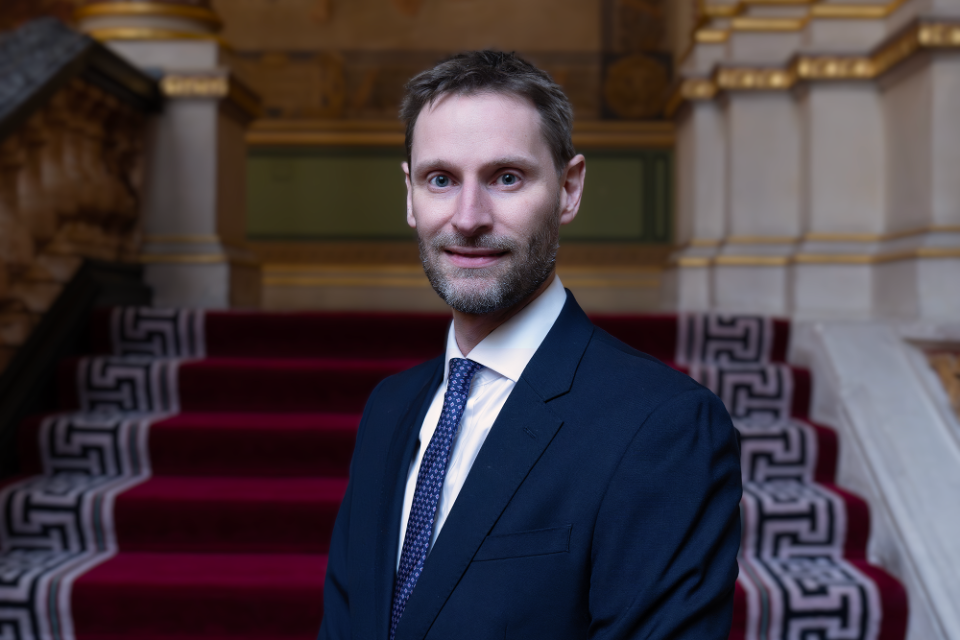Defence Secretary Speech to Institute for Government
Good morning, everyone. Thank you for being here and thank you for hosting us today.
The Institute for Government, in my book, plays a really important role in Westminster. It helps hold Ministers to account for what we say we’re going to do as part of that bigger mission to securing this country a better government for Britain.
I must say, when I confirmed this event a few weeks ago, I wouldn’t have expected such interest in MOD reform, and I’m really grateful for the level of this attendance and presence, both in the room and online.
But I guess the pace of the geopolitical change which you were referring to Hannah, and what we’re seeing right now confirms what I would argue is the need for change within defence too.
As I said on my first day as Secretary of State in the department, when I came through the doors, I’m a Defence Secretary that’s more interested in getting results and global opportunities than headlines, and I guess I’m delivering on that promise, making a speech on defence reform right in the middle of parliamentary recess.
However, the headlines, the wider headlines, and the decisions that we make right now over the coming weeks will not only define the outcome of the conflict in Ukraine, but the security of our world for a generation to come, and the nature of government means dealing with these challenges.
In my view, the test of leadership, of political leadership isn’t just about managing the immediate, it’s also about reforming for the future.
We’re in a new era of threat that demands a new era for defence and in the middle of everything else, last week, the new Defence Secretary Pete Hegseth in the US and I, made time to discuss the aims we share on defence reform.
This government, our new Labour government, was elected on a mandating one word: change.
We govern on an instruction in one word: deliver.
And as a new government, we’re delivering for defence.
Over these first seven months, we stepped up and speeded up support for Ukraine. We’ve increased defence spending this year by nearly £3 billion, and we’ll set the path to spending 2.5% of GDP in the Spring.
We’ve launched a new Defence Industrial Strategy. We secured a deal to buy back 36,000 military homes to improve conditions for personnel and get better value for the taxpayer.
We’ve given the men and women of our armed forces the biggest pay increase for more than 20 years. We signed the landmark Trinity House agreement with the Germany.
We’ve already progressed the Armed Forces Commissioner bill through the House of Commons to give a strong independent voice to improve service life.
We have in the MOD two major change programmes both launched within the first month of government.
One, the Strategic Defence Review. Two, our Defence Reform program. Each is essential for the other. The Defence Review will reinforce the imperative for Defence Reform. Defence reform is the foundation for being able to implement the Defence Review and for discharging what is our first duty in government.
Exactly a year ago, actually, in February, I gave a speech at Policy Exchange on defence reform in which I outlined, and I said then the need to create a strong defence centre capable of leading Britain meeting the increasing threats we face.
And in a little noticed section of the Labour Party manifesto at the July election, we pledged specific reforms and said strengthening our defences requires stronger leadership, clearer accountability, faster delivery, less waste and better value for money.
By the end of July, I put in place a new team, new leadership, and weekly meeting meetings with me to drive our defence reform programme.
And today, I wanted to offer an update on where we’ve got to and where we are going in the months ahead.
One of the really special things about this job, the special things about this special job are the deeply impressive men and women I meet every day, from the submariners coming home from weeks undersea, to apprentices on Derby’s nuclear reaction production lines, to the NATO HQ team with people in the MOD building that last week pulled together the Ukraine led contact group meeting of 46 nations in the room at one week’s notice.
Extraordinary people doing extraordinary things within a system that very often doesn’t work in the way that we need it to, for an increasingly dangerous world, work in the way that we need it to, to provide our armed forces with what they need to deter, to fight and to win.
First, underpinning it all is the absence of clear, consistent accountability, central to the effectiveness of any organisation. Yet I have been in too many meetings when I ask who’s leading this? Who’s responsible for getting this done? And no one is able to give me a single, clear answer.
Second, while everyone agrees that defence spending needs to increase, it’s not just how much you spend, but it’s how well you spend it. And we’re simply not securing the value for money our armed forces, our economy needs for every defence panel.
We duplicate even the most central tasks. For example, we have eleven separate finance functions, two and a half thousand people doing the same activity in different places, in different ways. And third defence is mired in process and procedure. We’ve added complexity where simplicity is needed.
Procurement, we’ve got a situation where we employ eleven checkers for every one decision maker. So, no wonder it takes an average six years for a large programme simply to get onto contract.
So today, I’m here to declare that investment in defence will be matched by reform.
First, we’re introducing clear points of accountability at every level within UK defence, starting at the top with four new senior leaders, four leaders who report to me as Defence Secretary and my ministerial team at the central point of accountability to the British people and to the British public.
The Chief of the Defence Staff, who, for the first time since this role was created, now commands the service chiefs and will be the head of newly established Military Strategic Headquarters, responsible for force design and war planning across our integrated force.
The Permanent Secretary, our principal accounting officer, who will run a leaner, more agile Department of State with more policy muscle to lead arguments across Whitehall and with allies, we’ll revamp senior roles to elevate those into policymakers with broad portfolios and powerful mandates.
Third, our new Armaments Director, who will fix procurement and drive growth. I’ll come back to the detail of the National Armaments Director in a moment.
Fourthly, our Chief of Defence Nuclear, who will continue to lead and deliver the national Nuclear Enterprise within the recently established ring fence and freedoms.
This new quad will lead a defence which is more concentrated on warfighting, readiness and on deterrence.
They’ll shift the approach as an organisation, which too often has been obsessed with process, to one focus on outcomes, in which information flows quickly, accountabilities are clear, and results are demanding. This new quad will be up and running from the 31st of March.
On finance will match our new accountabilities, making hardware that manages money better to secure better value for money, for the taxpayer, better outcomes for the armed forces.
[Political reference removed]
Instead of the ten current top line budget holders, there will be four new budget holders, one for each of this new quad. We will introduce three new centrally determined financial budgets, each with ministerial oversight, readiness, operations, investment.
The new readiness budget will hold the chiefs of the services to account for how they run their day-to-day spending. This will be done by the Chief of Defence Staff through our new Military Strategic Headquarters. The Military Strategic Headquarters will be responsible for the new operations budget, unencumbered by the excess bureaucracy and the lack of clarity that characterises the way the defence is organised now, and ministers will direct those priorities.
And then finally, our new National Armaments Director will run the single new investment budget, bringing together eight separate procurement budgets across the organisation into one.
This will help cut waste, reduce duplication, it will help ensure that we are buying better what our front-line forces need. In turn, the Armaments Director will acquire owning capabilities which are affordable within the budgets set by Ministers.
These budgets, as with the quad, will have Initial Operating Capability from the end next month, 31st March.
Our new National Armaments Director will fundamentally change how defence works partner with industry, how the defence becomes the engine for driving economic growth.
So sitting alongside the Permanent Secretary, the Chief of Defence Staff, then executing £20 billion-plus budget to build sustain our national arsenal, because at this time, we must rearm Britain, and I see this as a new FTSE 100 company within the MOD tasked, if you like, with getting the very best capabilities needed into the hands of our frontline forces.
Delivering on our Defence Industrial Strategy to create more defence jobs, more defence apprenticeships in every region and nation across the UK. Tasked with driving British exports up and wider, tasked with receiving responsibility for the entire end to end acquisition system for the MOD.
They will save the taxpayer at least £10 billion over the next decade, savings that we would reinvest directly into Britain’s defence. Our interim National Armaments Director will be in post by the end of next month, recruitment for a permanent candidate is already underway.
In conclusion, the world is changing. Defence is changing. Our reform programme represents the biggest shake up of UK defence for over 50 years.
Let me say this. This is a government whose commitment to defence is unshakeable. It’s the foundation for our Plan for Change, for the delivery of our government’s missions, we will match sustained investment with serious reform.
It will mean, growing the economy. It will mean a more muscular defence for a more dangerous world. It will mean, Britain, which is secure, at home, and strong abroad.










